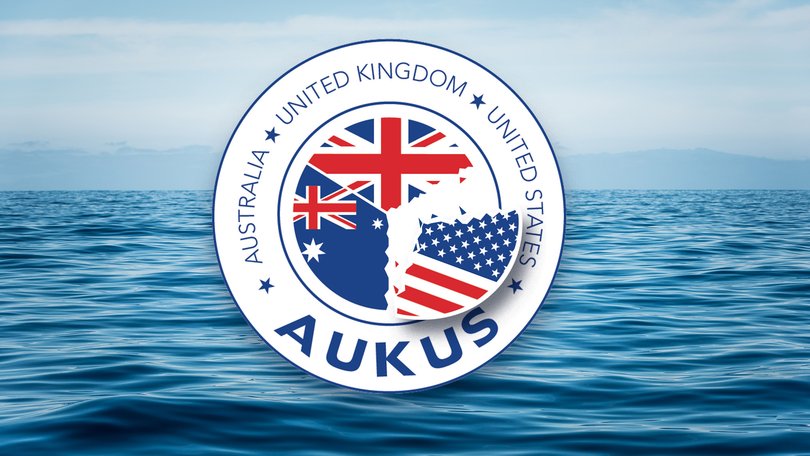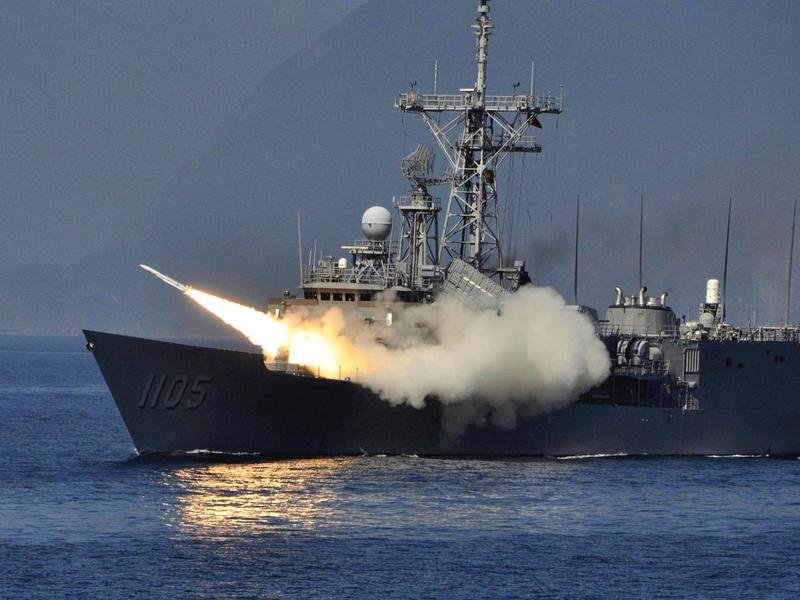AUKUS review: Trump administration ‘fed up’ with Anthony Albanese over defence policy and Taiwan
A former senior Australian defence bureaucrat with close ties to the Trump administration has revealed what he believes sparked a review of the AUKUS agreement.

The Trump Administration decided to review the AUKUS nuclear-submarine alliance with Australia and Britain after becoming frustrated with the Albanese Government’s response to a request to increase military spending, according to a former senior Australian defence bureaucrat with close ties to the US government.
Ross Babbage said Prime Minister Anthony Albanese and Foreign Minister Penny Wong have risked the AUKUS program by being seen to dismiss Secretary of Defence Pete Hegseth’s appeal two weeks ago for Australian defence spending to be raised to 3.5 per cent of GDP from 2 per cent.
“I think the Americans are frankly a bit fed up,” Dr Babbage told The Nightly, “(By) the blunt refusal to seriously take note of and progress in any sort of direct way Hegseth’s request.”
Sign up to The Nightly's newsletters.
Get the first look at the digital newspaper, curated daily stories and breaking headlines delivered to your inbox.
By continuing you agree to our Terms and Privacy Policy.Mr Babbage was an assistant secretary for ANZUS in the Department of Defence and head of strategic analysis at the Office of National Assessments, the prime minister’s intelligence agency.
Now a national security consultant, Dr Babbage said he had a “professional friendship” with Elbridge Colby, the US Under Secretary of Defence for Policy who is reportedly reviewing the agreement, which the government and opposition regard as central to Australia’s defence next decade.
Four months ago Mr Colby called on Australia to raise defence spending to 3.0 per cent of GDP. The Labor Government has promised spending “over 2.3 per cent” by next decade.
The China threat
While the scope of the review is unclear, Mr Colby has expressed concerns AUKUS would leave the US Navy short of nuclear submarines. Three or more US-made Virginia class vessels have been promised to the Royal Australian Navy.
In addition to the dismissal of the spending request, made in private to Defence Minister Richard Marles on June 1 in Singapore, Dr Babbage said the Trump administration would have noted recent comments by Mr Albanese about China, which Mr Colby and other US officials regard as America’s greatest military threat.
Asked on Tuesday if he regarded China as a threat, Mr Albanese said: “I think that our engagement with the region and the world needs to be diplomatic, needs to be mature and needs to avoid the, you know, attempts to simplify what are a complex set of relationships.”
The Trump administration may expect the Australian nuclear submarines to be available to defend Taiwan if it is invaded by China, which has built the world’s largest navy and sent aircraft carriers into the Pacific Ocean this month for the first time.
The Albanese Government’s ambiguity over whether it would contribute to the island’s defensive has added to uncertainty within the Trump administration about the AUKUS alliance, said Dr Babbage, who met US officials in Washington last month.
“As far as I am aware there have been no assurances given to Washington about how Canberra will respond to a crisis in Taiwan,” he said.
“Their deep concern is that we may have a major crisis in the next five years and maybe much sooner over Taiwan and they have been looking for assurance from Canberra that if they transfer boats to Australia, those boats will not be lost to the alliance.”

Disruption
A decision by the US to cancel the submarine program would be one of the biggest disruptions to Australia’s military investment plans since Japan invaded Southeast Asia in 1941.
Defence analyst and academic John Blaxland said he was “reasonably optimistic” the submarine deal would go ahead, in part because the US will get an “incredibly consequential piece of real estate” in a submarine base in Perth.
Mr Marles portrayed the review as unexceptional. “This is a pretty normal and natural step that the American Administration is taking,” he said.

The Coalition’s defence spokesman, Angus Taylor, questioned if it was triggered by the size of the defence budget and a decision this week to impose travel and financial sanctions on two right-wing Israeli ministers, a step criticised by the US.
“You don’t project strength by undermining alliances,” Mr Taylor said.
It remains unclear if Mr Albanese will meet Mr Trump at a meeting of the Group of 7 leading nations in Alberta, Canada, over the weekend and early next week.

